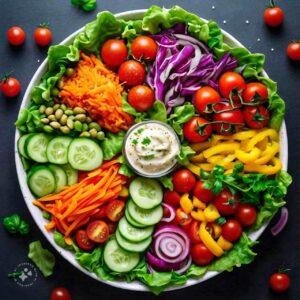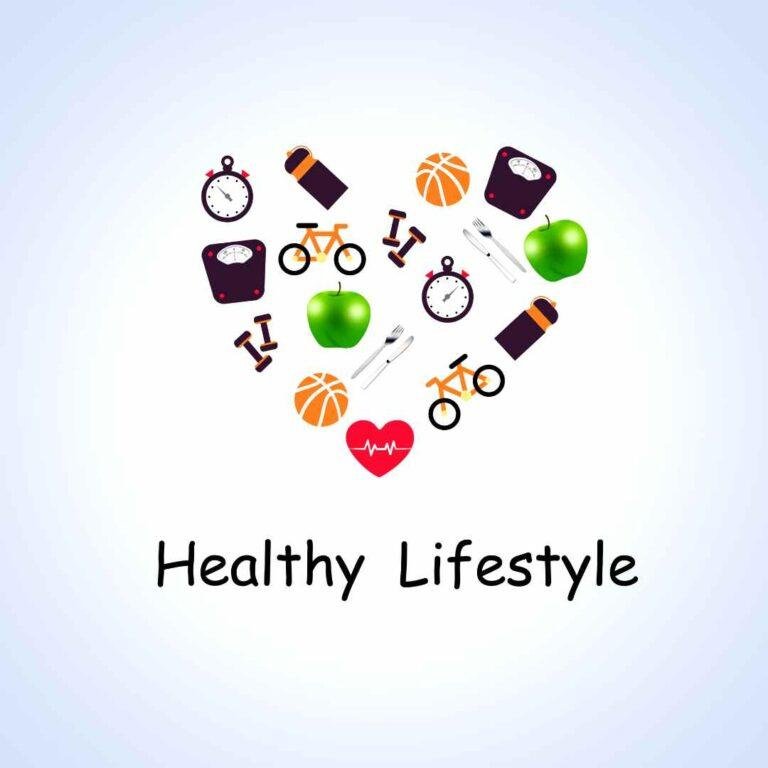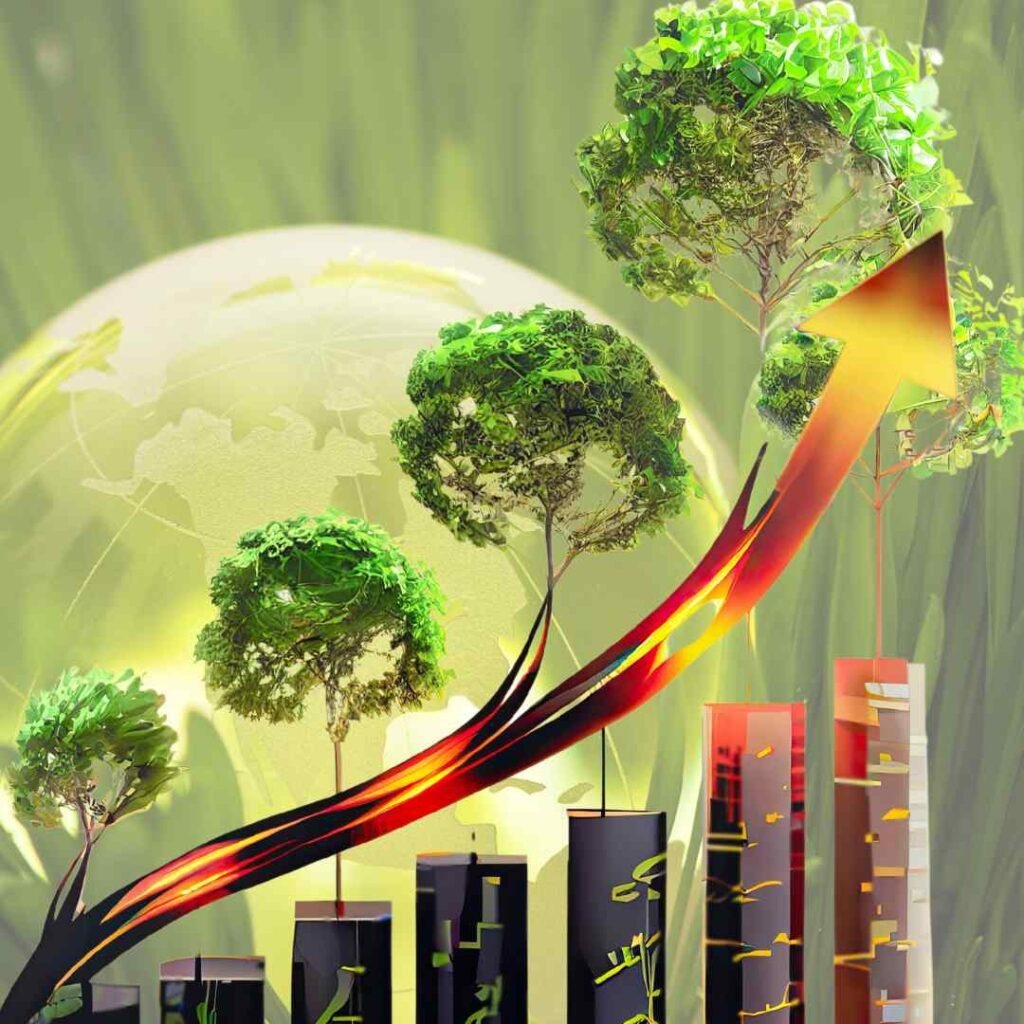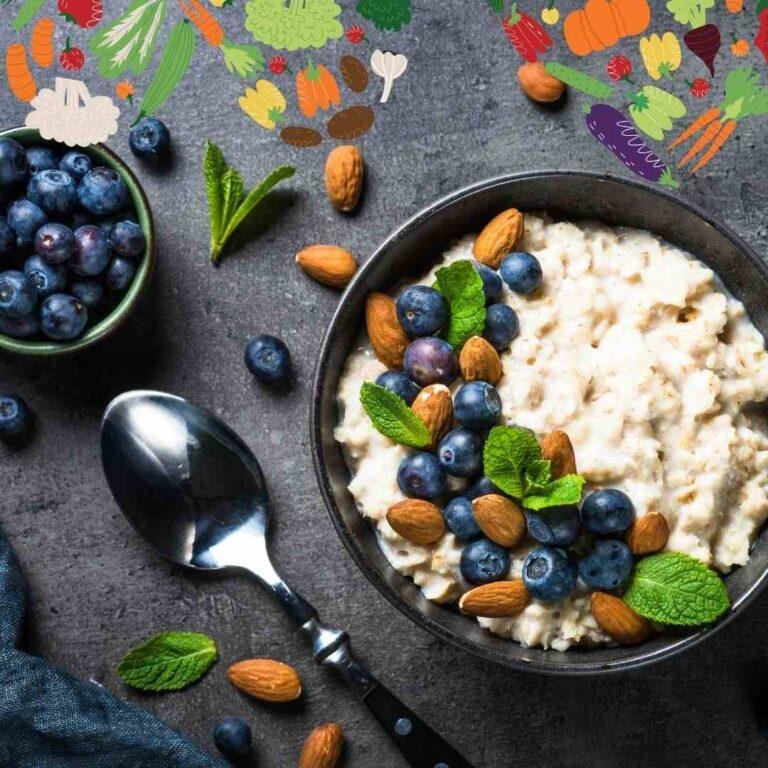
Is vegetarianism merely a fad? Learn why plant-based food is a real solution, exploring high-protein vegetarian foods and the best protein food for vegetarians
Introduction
Vegetarianism is often seen as a dietary trend, but is it really just a fleeting fad? With increasing numbers turning to plant-based food options, it’s crucial to evaluate if this shift is merely trendy or a solution to pressing health, environmental, and moral issues. Spoiler alert: it’s not just a trend! This article will dive into how vegetarian meals can genuinely benefit our health, reduce environmental damage, and promote ethical eating, while busting some myths surrounding the vegetarian diet, like protein deficiency and lack of balanced nutrients
Rise of Vegetarianism
Vegetarianism is not a new concept. It dates back thousands of years, practiced by various religious and philosophical traditions, such as Hinduism, Jainism, and Buddhism. However, the modern revival of vegetarianism gained momentum in the West during the 19th century due to health and moral reform movements. More recently, the trend surged due to social media influence, celebrity endorsements, and campaigns promoting cruelty-free living.
Despite its ancient roots, the recent rise in vegetarianism in Western countries coincides with greater consumer awareness and the increased availability of plant-based products. Thus, the perception of vegetarianism as a trend is partly true—media and cultural factors have indeed popularized it. However, the reasons for its growth are much deeper
Health Impacts
A Justified Shift or Mere Trend?
One of the primary reasons people choose vegetarian food is for its health benefits. A well-balanced vegetarian diet, rich in fruits, vegetables, whole grains, and legumes, has been linked to lower risks of chronic diseases, such as heart disease and diabetes


Studies published in the Journal of the American Heart Association found that individuals consuming plant-based food have a 16% lower risk of cardiovascular diseases compared to meat-eaters. This is attributed to the high intake of fiber, antioxidants, and healthy fats from nuts and seeds, which are among the top vegetarian meals.
On the other hand, critics argue that poorly planned vegetarian diets can lead to deficiencies in essential nutrients like vitamin B12, iron, and omega-3 fatty acids. However, modern dietary supplements and fortified foods can easily bridge these gaps. Thus, the health benefits of vegetarianism, when approached correctly, suggest that it is more than a passing trend—it offers a genuine solution for preventing lifestyle-related diseases
According to research by Harvard Medical School, following a plant-based diet can reduce the risk of Type 2 diabetes by 34%. The high content of complex carbohydrates and fiber in vegetarian meals keeps blood sugar levels stable
Busting the Nutrient Deficiency Myth
A common misconception is that vegetarianism leads to nutrient deficiencies, particularly in protein. However, high protein vegetarian foods like lentils, chickpeas, tofu, and quinoa offer ample protein. In fact, quinoa contains all nine essential amino acids, making it one of the best vegetarian protein sources available
Environmental Aspects
Trend or Necessity?
Switching to a plant-based diet is one of the most effective steps to minimize environmental damage. Livestock farming is responsible for approximately 14.5% of global greenhouse gas emissions, according to the Food and Agriculture Organization (FAO). In contrast, plant-based food production has a much smaller environmental footprint
- Lower Greenhouse Gas Emissions
A study in the Science Journal revealed that adopting a vegetarian diet can reduce an individual’s carbon footprint by up to 50%. Eating plant-based means fewer methane emissions from livestock, which are a significant contributor to global warming


2. Water Conservation
Producing a single pound of beef requires 1,800 gallons of water. In comparison, growing the same amount of plant-based protein (like soy) only needs 216 gallons. Switching to high protein vegetarian foods like beans and lentils can save massive amounts of water
Plant-based food production requires less land compared to meat production. By some estimates, a vegetarian diet can use 18 times less land than a diet that includes meat, making it a sustainable choice in combating deforestation.
Ethical Considerations
A Moral Imperative or a Lifestyle Statement?


Reducing Animal Suffering
Every year, billions of animals are raised and slaughtered for food, often in inhumane conditions. By choosing vegetarian meals, people can help reduce the demand for such practices.
Supporting Humane Practices
Consuming a vegetarian diet aligns with values of compassion and empathy. Research from Oxford University found that people on a plant-based diet tend to have a lower level of cognitive dissonance regarding animal welfare issue
Debunking Common Myths About Vegetarianism
Vegetarian Diets Lack Protein?
Contrary to popular belief, getting enough protein on a vegetarian diet isn’t challenging. Vegetarian sources of protein include lentils, beans, quinoa, and tofu. Per serving, these foods can provide just as much protein as meat.
Fact Check: A cup of cooked lentils has about 18 grams of protein, which is more than a boiled egg. Similarly, a cup of chickpeas contains 15 grams of protein, making them excellent protein foods for vegetarians
Vegetarians Suffer from Nutrient Deficiencies?
Another misconception is that vegetarians lack essential nutrients like iron, vitamin B12, and omega-3s. While it’s true that vegetarians need to plan their diets to include fortified foods or supplements for B12, other nutrients are easily accessible.
Fact Check: Spinach, tofu, and fortified cereals are rich in iron, and walnuts, chia seeds, and flaxseeds provide omega-3 fatty acids.
Is Vegetarianism Just a Trend?


Vegetarianism has experienced phases of popularity, making it susceptible to being labeled as a “trend.” However, its resurgence in the 21st century is backed by data on health benefits, environmental sustainability, and ethical reasoning.
The rise in vegetarian food alternatives and innovations, such as plant-based meats and dairy, supports the idea that vegetarianism is more than a temporary phase.
Market trends indicate that the global plant-based food market is expected to grow from USD 35 billion in 2022 to over USD 162 billion by 2030, reflecting a shift in consumer demand that is unlikely to fade quickly
FINAL tAKEAWAYS
Vegetarianism—A Trend or a Solution?
While aspects of vegetarianism have trended due to media influence and social factors, it is ultimately more than just a passing craze. The movement is rooted in historical precedence, backed by health research, and supported by environmental necessity and ethical considerations. The label of “trend” often implies something short-lived and without lasting impact. In contrast, vegetarianism addresses systemic issues like environmental degradation, health crises, and animal welfare.
Thus, vegetarianism should be considered a solution rather than just a trend. Its growing influence is a reflection of a broader shift toward sustainable and ethical living. As societies become more aware of the interconnected challenges we face, vegetarianism is likely to solidify its role as part of the long-term solution for a healthier planet and populace



